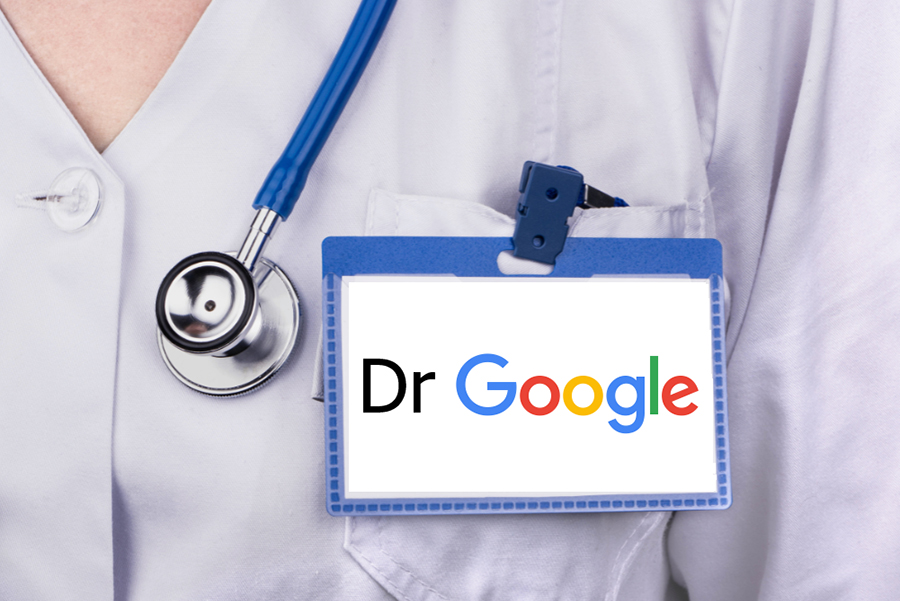
Published :
Updated :

Oftentimes, people's first response to any illness is a quick Google search of their symptoms. From headache to diabetes, they look up everything on the search engine. And reportedly, Google now deals with 70,000 searches about medical concerns every minute. The tendency of patients to consult doctor Google is increasing in Bangladesh too. According to a recent study, as many as 58 per cent of adults in Dhaka division went online so far this year to identify a medical condition for themselves or someone else. What is more worrying is that many of them have even followed the medication prescribed by Dr. Google.
In this digital era, health information is at our fingertips with a simple online search providing a range of answers. However, solely depending on Google for self-diagnosis can lead to problems. Despite the abundance of medical information online, it is essential to use caution and take into account the accuracy of the information. While it may seem a time saver, a harmless headache could easily be mistaken for a brain tumour, while chest pain could be confused for breast cancer. It can create unnecessary anxiety, known as cyberchondria among netizens. It is a fear of having an illness or health condition. People with hypochondria can be obsessive about their health and tend to self-diagnose the worst possible prediction for themselves. It is much safer for one's mental health to consult a qualified physician before coming to any conclusions and becoming panicked about a condition one may only potentially have. Dr. Google can exaggerate your symptoms or the anxieties with your symptoms. It is such a common issue that there is a running joke among healthcare professionals that if you google a symptom, you will inevitably be told that you have cancer.
Online symptom checking may seem beneficial. But they are no substitute for real doctors. We have to remember that these search engines and apps use computer algorithms to match one's symptoms with potential conditions. But they cannot replace the expertise of a medical professional. Depending on these tools could lead to misunderstandings about health or needless anxiety. And not all the health information online is accurate. Trustworthy sources provide reliable information, while social media and less credible sites can contain inaccurate or outdated information.
According to a study conducted by Edith Cowan University and published in the Medical Journal of Australia, online symptom checkers are accurate only about a third of the time. Wikipedia is one of the most accessed sites when it comes to medical information. Research shows that 90 per cent of medical information posted on the website is inaccurate and misleading. Anyone can edit information online and no verification is required there. Then why trust unreliable sources online?
Dr. Google can be helpful when used in conjunction with your physician. If your doctor diagnoses you with high blood pressure and gives you a prescription and instruction on changing your lifestyle, you can certainly research on what has been prescribed and check on potential side effects. If you are worried about your symptoms or find something in your research which troubles you, contact your doctor. The reality, however, is that online self-diagnosis cannot be prevented. But those consulting Dr. Google should be aware of its potential risks.


 For all latest news, follow The Financial Express Google News channel.
For all latest news, follow The Financial Express Google News channel.